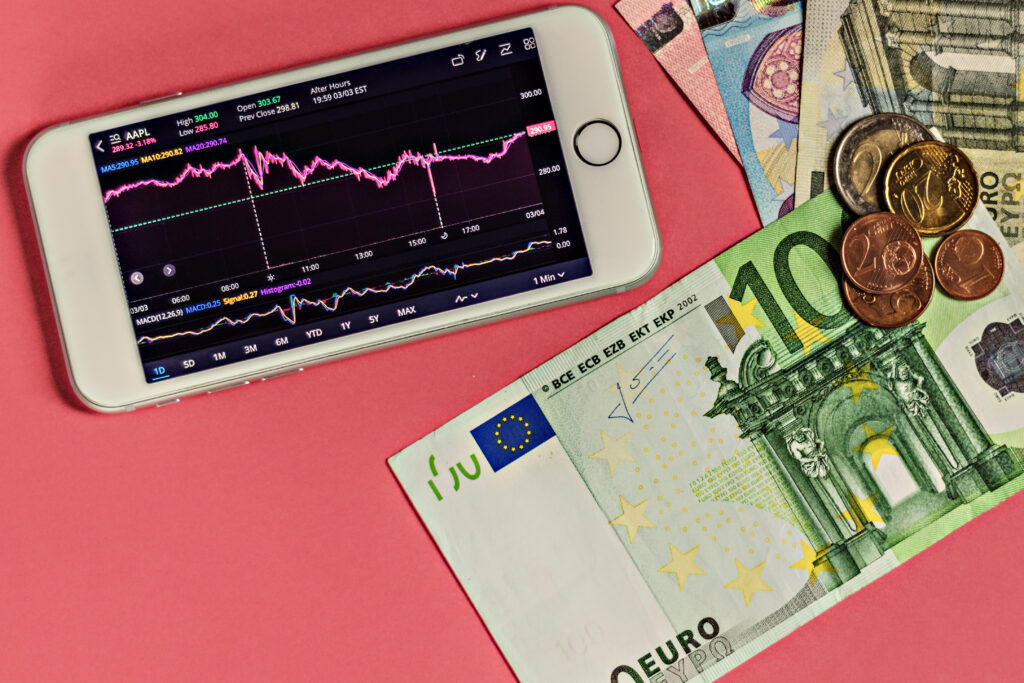Introduction
In recent years, a profound transformation has swept through the global tourism industry, reshaping the way travelers explore and experience the world. This metamorphosis is characterized by a substantial shift towards more sustainable and responsible travel practices. Against the backdrop of an increasingly eco-conscious global community, international ecotourism trends have surged in prominence. These trends reflect the evolving preferences of modern-day travelers who, more than ever, seek destinations that not only offer awe-inspiring natural beauty but also prioritize environmental conservation and the well-being of local communities.
The traditional paradigm of tourism, which often emphasized sheer numbers and economic gain at the expense of the environment and local cultures, has been gradually supplanted by a new ethos—one that champions responsible and eco-friendly travel. This paradigm shift represents a collective recognition of the finite nature of our planet’s resources and a deep-seated desire to protect and preserve the world’s natural wonders for future generations.
While the impact of ecotourism on environmental preservation and local economies is well-documented, this article embarks on an exploratory journey into a realm that remains relatively uncharted—the symbiotic relationship between international ecotourism trends and Forex (foreign exchange) markets. This unexamined interplay comes to the forefront, particularly in countries graced with abundant natural resources and unrivaled biodiversity.
As we delve deeper into this intricate relationship, we shall unearth the hidden mechanisms by which ecotourism’s rising tide can ripple through Forex markets, leaving a lasting imprint on currency strength and stability. By peering into this lesser-explored dimension of the ecotourism phenomenon, we aim to shed light on the profound implications and opportunities that emerge when sustainable tourism intersects with the global financial stage.
Read our article on Global Art Trade

Understanding Forex Markets
Before we delve into the relationship between ecotourism trends and Forex markets, it is crucial to have a basic understanding of how Forex markets work. Forex, short for foreign exchange, is the global marketplace where currencies are traded. It is the largest and most liquid financial market in the world, with a daily trading volume exceeding $6 trillion. Forex trading involves buying one currency while simultaneously selling another, with the aim of profiting from fluctuations in exchange rates.
To comprehend the intricate relationship between ecotourism trends and Forex markets, it is essential to establish a fundamental understanding of how Forex markets operate. Forex, a condensed term for foreign exchange, represents the worldwide marketplace where currencies are exchanged and traded. It stands as the largest and most liquid financial market on a global scale, boasting an extraordinary daily trading volume that surpasses a staggering $6 trillion.
At its core, Forex trading is a complex process that revolves around the exchange of one currency for another, with traders often simultaneously buying one currency while selling another. This exchange occurs with the primary objective of capitalizing on fluctuations in currency exchange rates. In essence, Forex trading is an intricate dance between different currencies, where participants aim to profit from variations in the relative values of these currencies over time.
This dynamic and expansive market operates around the clock, five days a week, providing an unparalleled level of liquidity and accessibility to traders and investors worldwide. The diverse range of participants in the Forex market includes financial institutions, central banks, multinational corporations, governments, and individual retail traders. Their collective actions and decisions contribute to the continuous flow of currencies and the determination of exchange rates.
The Forex market’s vast size and constant activity make it a pivotal player in the global financial landscape, influencing economic conditions, trade relationships, and investment decisions on a grand scale. Understanding the mechanics of Forex trading is paramount when exploring its interactions with international ecotourism trends, as these dynamics are integral to comprehending how responsible tourism practices can impact currency strength and stability.
Currency Exchange Rates and Tourism Demand
The exchange rate of a country’s currency is a critical factor that significantly influences its competitiveness in the international tourism market. The relationship between exchange rates and tourism demand is complex and can have a profound impact on a nation’s economy.
When a country’s currency is weaker relative to other major currencies, it becomes an attractive destination for international tourists. This is because foreign visitors can benefit from a favorable exchange rate, which increases their purchasing power within the destination country. In essence, their money goes further, making the cost of travel, accommodation, and other expenses more affordable.
Conversely, when a country’s currency is stronger, it can deter tourists due to higher costs. Travelers may find their budgets stretched thin when converting their home currency to the stronger local currency. This can lead to a decrease in the number of international tourists visiting the destination, potentially impacting the tourism industry’s revenue and overall economic health.

Impact of Exchange Rates on Tourism Demand
The influence of exchange rates on tourism demand can be observed when a country experiences a surge in ecotouA country’s exchange rate plays a major role in shaping ecotourism demand, especially as global interest in sustainable travel grows. When a domestic currency weakens, the destination instantly becomes more attractive to international tourists because their foreign currencies hold greater purchasing power. This encourages more travellers to explore its natural attractions, leading to higher tourism revenue.
As foreign arrivals increase, so does the demand for the local currency. Visitors need it for accommodation, food, transportation, entrance fees, and local purchases. This rising demand can place upward pressure on the currency’s value. If the currency appreciates, the destination may gradually become more expensive for visitors. Although this may slow tourist inflow, it also indicates growing confidence in the nation’s economic performance.
Exchange rate movements carry broader economic implications. A stronger currency may reduce affordability and potentially lower tourist arrivals, affecting communities that depend on ecotourism for income. In contrast, a weaker currency can stimulate tourism growth and support sectors linked to hospitality, transportation, and conservation.
For countries promoting ecotourism as part of their development strategy, understanding how exchange rates influence visitor demand is essential. Policymakers and central banks may need to manage currency stability in ways that maintain tourist appeal without harming economic balance.
In summary, exchange rates significantly shape ecotourism patterns and foreign currency inflows. As sustainable tourism continues to expand globally, the relationship between currency valuation and tourism demand will remain crucial for destinations seeking long-term economic and environmental benefits.
Conservation Efforts and Currency Stability
Ecotourism is intrinsically linked to stringent environmental conservation efforts. Countries that prioritize the protection of their natural resources and biodiversity tend to attract eco-conscious tourists. This strong emphasis on conservation can lead to a more stable and sustainable economy, subsequently influencing currency stability in several ways.
Countries that actively engage in environmental conservation efforts create an ecosystem that resonates with environmentally conscious travelers. These eco-conscious tourists are not only drawn to the pristine natural beauty of a destination but also appreciate the commitment of the host country to preserve its ecological treasures.
Case Study: Namibia
Namibia stands as a remarkable case study in this regard. The nation’s unwavering dedication to wildlife conservation and responsible tourism has significantly enhanced its appeal as a leading ecotourism destination. This commitment has not only contributed to a robust and resilient Namibian dollar but has also triggered substantial investments in conservation initiatives. Namibia has created a positive feedback loop where the revenue generated from ecotourism is reinvested into conservation efforts, further enriching its natural attractions and currency stability.
Read our article on NGO Activities
Tourism Regulations and Impact on Forex
Ecotourism is intrinsically linked to stringent environmental conservation efforts. Countries that prioritize the protection of their natural resources and biodiversity tend to attract eco-conscious tourists. This strong emphasis on conservation can lead to a more stable and sustainable economy, subsequently influencing currency stability in several ways.
Countries that actively engage in environmental conservation efforts create an ecosystem that resonates with environmentally conscious travelers. These eco-conscious tourists are not only drawn to the pristine natural beauty of a destination but also appreciate the commitment of the host country to preserve its ecological treasures.
Case Study: Namibia
Namibia stands as a remarkable case study in this regard. The nation’s unwavering dedication to wildlife conservation and responsible tourism has significantly enhanced its appeal as a leading ecotourism destination. This commitment has not only contributed to a robust and resilient Namibian dollar but has also triggered substantial investments in conservation initiatives. Namibia has created a positive feedback loop where the revenue generated from ecotourism is reinvested into conservation efforts, further enriching its natural attractions and currency stability.
The role of governments in shaping ecotourism trends is pivotal, as they craft policies and regulations that dictate the direction of their nation’s tourism industry. Measures such as strict environmental protection laws, the promotion of responsible tourism practices, and dedicated wildlife preservation efforts can significantly enhance a country’s reputation as an ecotourism hub. These efforts, in turn, can have a ripple effect on Forex markets by influencing the flow of foreign exchange.
Government Initiatives in Botswana
Botswana serves as an exemplary illustration of government-led initiatives to safeguard its pristine wilderness and wildlife. The country has taken proactive measures, including the enactment of stringent regulations and policies that prioritize conservation. These conservation-focused policies have attracted eco-tourists in droves, thereby positively impacting Botswana’s currency, the Botswana pula.
The increased revenue generated from ecotourism has allowed the Botswana government to channel substantial investments into furthering its conservation and tourism infrastructure. This strategic allocation of funds not only enriches the country’s natural heritage but also bolsters its economic resilience. The Botswana pula’s strength is a testament to the mutually beneficial relationship between ecotourism and currency stability.
In conclusion, the interplay between ecotourism, environmental conservation, and Forex markets underscores the intricate relationship between responsible tourism and economic stability. Countries that champion conservation efforts and enact tourism regulations that align with ecotourism principles often find themselves enjoying both the financial benefits of a thriving tourism industry and the stability of their national currencies. As ecotourism continues to gain prominence on the global stage, the influence of these factors on Forex markets remains a compelling subject for further exploration and analysis.

The Role of Digital Marketing and Social Media
In today’s digital era, a country’s online presence significantly shapes how global travellers perceive it. Strong digital marketing and active social media engagement help destinations showcase their ecotourism attractions, leading to increased tourist interest and higher foreign exchange inflows. As more travellers discover destinations online, the impact naturally extends into Forex markets through rising demand for local currency.
Online Presence and Destination Promotion
A powerful online presence allows countries to highlight their landscapes, cultural sites, and sustainable tourism practices. Social platforms give destinations the ability to reach millions of potential visitors instantly, influencing travel decisions and boosting ecotourism demand.
Example: New Zealand
New Zealand has excelled in digital promotion with its “Pure New Zealand” campaign. Stunning visuals, consistent branding, and strong social engagement have positioned the country as a top eco-destination. This online success led to increased international arrivals and higher foreign currency inflows, which contribute directly to shifts in its Forex market.
Online Booking Platforms and Forex Impact
Online booking platforms have transformed ecotourism by making trip planning fast and convenient. Travellers now book tours, accommodations, and activities digitally, increasing the volume of foreign currency transactions flowing into host countries.
Example: Thailand
Thailand’s growing popularity on booking platforms has encouraged more tourists to book eco-experiences online. This rise in digital bookings increases foreign currency inflow, creating greater demand for the Thai baht. Higher demand can strengthen the baht temporarily, influencing the country’s exchange rate and its overall Forex market dynamics.
Conclusion
Digital visibility and modern booking systems have become essential tools for ecotourism growth. Strong online promotion attracts international tourists, boosts foreign exchange inflows, and shapes currency movements. As ecotourism expands, this digital–economic connection will continue influencing tourism revenue and Forex market behaviour.
Conclusion
International ecotourism trends have a clear impact on Forex markets. They reveal a strong connection between responsible tourism and currency movement. Countries with rich natural resources and biodiversity gain significant advantages when they promote sustainable tourism. This often leads to stronger foreign exchange reserves, improved currency stability, and healthier long-term economic performance.
Ecotourism also supports environmental protection, which contributes to financial resilience. When conservation and economic growth move together, a country becomes more stable and attractive to global travellers. This stability can reflect positively in its currency strength.
Governments influence ecotourism growth through policies that protect natural areas and encourage sustainable practices. Along with this, digital marketing and online booking platforms help destinations reach international audiences. These tools increase foreign inflows and shape currency demand, further linking ecotourism to Forex markets.
In today’s interconnected world, understanding how ecotourism affects Forex markets is essential for policymakers, investors, and businesses. This knowledge supports better planning and highlights opportunities within the growing demand for sustainable travel. As more travellers seek eco-friendly experiences, the role of ecotourism in shaping currency trends will continue to grow and remain an important part of global economic strategy.
Click here to read our latest article on Global Real Estate
FAQs
1. What is ecotourism, and why is it gaining momentum globally?
Ecotourism is responsible travel focused on conserving nature and supporting local communities. It is rising globally as travellers prefer eco-friendly, meaningful, and sustainable experiences.
2. What are Forex markets, and why are they significant in the context of ecotourism?
Forex markets are global currency-trading platforms. They matter because international tourism and ecotourism trends directly influence currency flows and exchange rate movements.
3. How can ecotourism influence a country’s foreign exchange reserves?
Ecotourism attracts foreign visitors who spend in local currency, increasing foreign exchange inflows and strengthening national reserves.
4. What is the relationship between exchange rates and tourism demand?
A weaker domestic currency attracts more tourists by making travel cheaper, while a stronger currency can reduce arrivals. This balance affects ecotourism destinations significantly.
5. Can ecotourism help countries diversify their economies?
Yes. Ecotourism provides an alternative revenue stream for nations dependent on a single industry, reducing vulnerability to global commodity price swings.
6. How does ecotourism contribute to environmental conservation?
It supports conservation projects, encourages responsible visitor behaviour, and channels tourism revenue toward protecting ecosystems and biodiversity.
7. How do governments shape ecotourism trends and Forex outcomes?
Through environmental regulations, infrastructure development, and conservation policies, governments enhance a destination’s appeal, influencing foreign exchange inflows.
8. What role does digital marketing play in ecotourism?
Digital marketing and social media help destinations showcase sustainable attractions, attracting eco-conscious visitors and increasing foreign currency inflow.
9. How do online booking platforms impact ecotourism and Forex markets?
They simplify planning and payments, boosting visitor numbers and increasing currency exchange activity in ecotourism hotspots.
10. Why is understanding the link between ecotourism and Forex important?
It helps policymakers, investors, and businesses plan better, strengthen economic strategy, and leverage sustainable tourism for currency stability.
Click here to read more on Global Ecotourism




